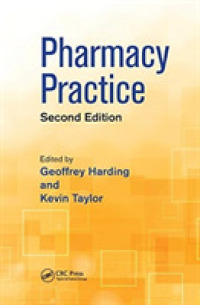Full Description
The silent attentiveness expected of concert audiences is one of the most distinctive characteristics of modern Western musical culture. This is the first book to examine the concept of attention in the history of musical thought and its foundations in the writings of German musical commentators of the late eighteenth century. Those critics explained numerous technical features of the music of their time as devices for arousing, sustaining or otherwise influencing the attention of a listener, citing in illustration works by Gluck, C. P. E. Bach, Georg Benda and others. Two types of attention were identified: the uninterrupted experience of a single emotional state conveyed by a piece of music as a whole, and the fleeting sense of 'wonder' or 'astonishment' induced by a local event in a piece. The relative validity of these two modes was a topic of heated debate in the German Enlightenment, encompassing issues of musical communication, compositional integrity and listener competence. Matthew Riley examines the significant writers on the topic (Descartes, Leibniz, Wolff, Baumgarten, Rousseau, Meier, Sulzer and Forkel) and provides analytical case studies to illustrate how these perceived modes of attention shaped interpretations of music of the period.
Contents
Contents: Introduction; Attentive Listening: The problem of attention; The theory and significance of attention: Descartes to Meier; Pleasure, emotion and the 'flow' experience; Adaptation of mimesis; Adaptation of rhetoric; Wonder and astonishment. Interlude: Rousseau's Transports of Attention: Simultaneous and successive unities; Applications. Sulzer and the Aesthetic Force of Music: Civilizing the savage; The aesthetic force of music. Forkel on Expert and Amateur Listening Practices: Kenner and Liebhaber: two modes of hearing; Musical decline and Forkel's remedy; Concert programming: pleasure, amusement and instrumental music; A metaphysical history of musical hearing; A new approach to attention. Elements of a Rhetoric of Attention: Arousing the attention: the rules of periodicity; Sustaining the attention: a musical dispositio; Forkel on music-rhetorical figures; The rhetoric in practice: Georg Benda and C.P.E. Bach. Bibliography; Index.








